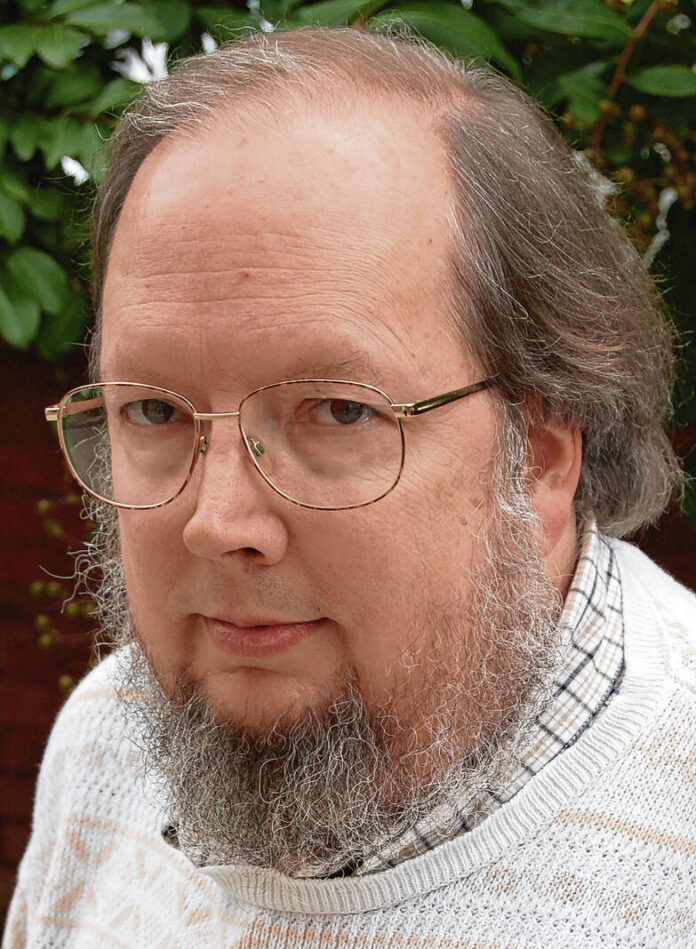Demons appear on movie screens all the time, but poet Richard Rohlin is convinced he has actually seen them at work when counseling young people whose search for meaning has driven them deep in experiments with sex, drugs and the occult.
“The stories that I can’t tell would curl your toenails,” he said, speaking at the Eighth Day Institute in Wichita, Kansas. “If you think that these spiritual realities are not still with us, you are deluding yourself. … The magic is coming back into the world. Something is happening and it is not an unqualified good.”
The young people he works with in Dallas are not interested in sermons and detailed descriptions of why their lives are broken. But they are open to fantasies, myths and tales — ancient and modern — about unseen, spiritual realities that interact with their lives.
Millions of Americans know where to find stories about angels, demons, warriors, seers, giants, demigods and heroic kings and queens. They head straight to movie theaters and cable television, where they find entire universes of content offering visions of fantastic worlds. The last place they would seek inspiration of this kind is in churches.
The irony is that some of these works draw inspiration from the fantasy classics honored in the ecumenical Eighth Day Institute’s annual fall celebration of The Inklings, a mid-20th-century circle of Christian writers in Oxford, England, that included C.S. Lewis, J.R.R. Tolkien and others.
This year’s lectures focused on Scottish writer George MacDonald, often called the grandfather of the Inklings, who is best known for “Phantastes,” “The Golden Key,” “Lilith” and many other works. The festival included Celtic and folk musicians, along with workshops on topics such as “The Art of Making Mead” and “Publishing for the Moral Imagination.”
The goal of MacDonald and the Inklings, noted Rohlin, was to reclaim an older vision of life in which physical realities corresponded to spiritual realities and nothing was considered purely material. The real divide was between “the seen and the unseen,” not between the “spiritual and the material.”
This worldview has been lost, even among many religious believers.
“Demons didn’t stop existing, angels didn’t stop existing, the saints didn’t stop existing because the Industrial Revolution came,” he said. “Spiritual realities did not change. But we fell under a spell. … Our eyes have become closed and dimmed to the way the world really is. This is why we need fairy tales.”
Thus, most modern Americans now live like secularists and materialists, even if they say they are traditional religious believers, said Geoffrey Reiter, a Mennonite who teaches literature at Lancaster Bible College in Pennsylvania. These people still believe God can work miracles and that the spiritual world can interact with the natural world, “but in practice we do not live like this. We have become … disenchanted.”
MacDonald, noted Reiter, was a chemist before becoming a Congregationalist pastor and then a novelist. He embraced science but also knew that he lived in an increasingly “disenchanted and secular world, and his fiction was part of a lifelong process of undoing that disenchantment.” He refused to see the material world as “dead atoms, pitiful particles drifting in a lonely, hopeless cosmos or raw resource to be shaped according to our wills.”
As for the cinematic visions marketed by Hollywood, Reiter said they are “functioning as a de facto mythology for our culture, whether their creators want to admit it or not.”
Rohlin agreed, but said it remains to be seen whether mass audiences will continue to embrace the Marvel Cinematic Universe stories, and similar epics, as they evolve into morality tales about oppression, environmentalism and gender, as opposed to old-school clashes between good and evil, with superheroes making life-and-death sacrifices to defend ordinary people.
Meanwhile, he said, it appears certain that the works of MacDonald, Lewis and Tolkien will stand the test of time.
“Fairy stories and fantasy literature — the good ones — are a uniquely effective way of training the eye of the heart to see and experience the enchanted world, to strengthen the sacramental imagination,” said Rohlin. “Only the person whose eyes and heart have been thus trained will be able to tell the kinds of stories that will last, stories that will endure beyond the fads of the moment.”
Terry Mattingly leads GetReligion.org and lives in Oak Ridge, Tennessee. He is a senior fellow at the Overby Center at the University of Mississippi. Send comments to [email protected].





